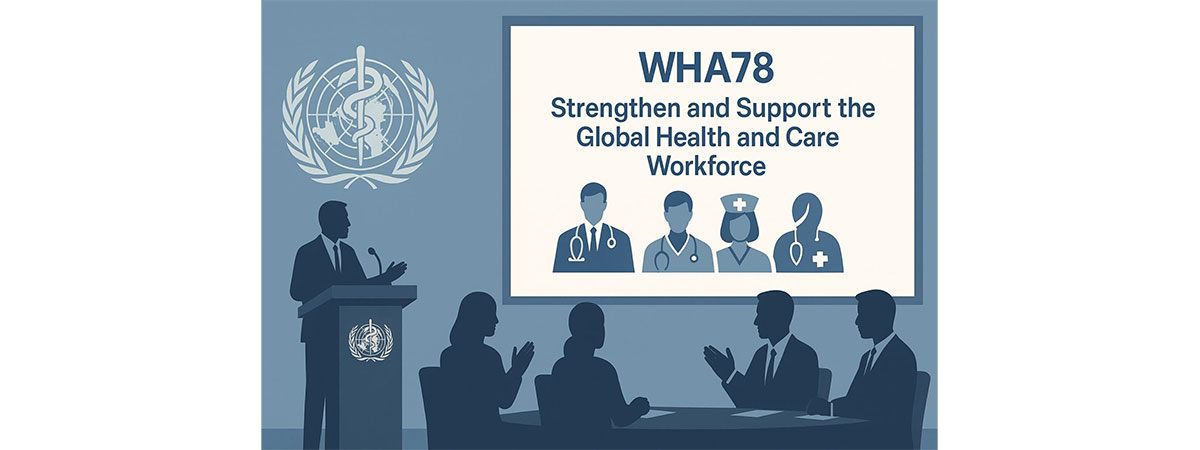WPA Welcomes WHA78 Commitment to Strengthen and Support the Global Health and Care Workforce
The WPA strongly supports the resolution adopted at the Seventy-eighth World Health Assembly 2025 (WHA78) reaffirming Member States’ commitment to protect, invest in, and empower the global health and care workforce. This action comes at a critical time as the world faces an increasing shortfall of health workers, now projected to reach 11.1 million by 2030, up from 10.2 million in 2022.
The resolution urges accelerated action to address the growing crisis of health worker shortages, unsafe working conditions, and unregulated migration. Member States have called for greater investment in education, job creation, and retention strategies, alongside innovation in digital technologies and artificial intelligence to support health personnel.
Patients Cannot Wait for Workforce Solutions
“Patients are directly affected by health workforce shortages," said Andrew Spiegel, Chair WPA. "Every gap in the workforce represents a delay in diagnosis, a missed follow-up, a longer wait in emergencies, or simply a lack of care altogether especially in low-resource settings."
The global patient community has long called attention to the urgent need for a well-trained, well-supported, and equitably distributed health and care workforce. WPA believes that addressing this crisis is not only a healthcare systems issue, it is a matter of patient rights, safety, and access to quality care.
Addressing Migration and Ethical Recruitment
WHA78 also highlighted the growing concern of health worker migration, with a record 105 countries reporting on international flows of health professionals. The Assembly emphasized the importance of strengthening ethical recruitment practices, as laid out in the WHO Global Code of Practice, and endorsed regional consultations in 2025 on ensuring mutual benefits, co-investment, and sustainability in cross-border health workforce mobility.
WPA urges Member States to involve civil society and patient organizations in these upcoming consultations, to ensure that the voices of those most affected by workforce disruptions, patients and their families are part of the discussion.
A Call to Center Patients in Health Workforce Planning
The WPA believes that health workforce policies must be people-centered, not only for the workers themselves but for the communities they serve. This means:
Prioritizing under-served populations in workforce deployment strategies;
Ensuring inclusive and equitable access to qualified health professionals;
Recognizing the contributions of informal and unpaid caregivers, who are often the first line of support for patients in under-resourced settings;
Engaging patients in health workforce planning to ensure services reflect real needs and lived experiences.
The Way Forward
The WPA applauds the renewed global momentum around health workforce strengthening and reiterates its commitment to working alongside WHO, Member States, and partners to ensure that health systems are resilient, inclusive, and centered around both workers and the patients they serve.
As health challenges become more complex, investments in human resources for health must not be delayed. Patients cannot afford to wait.


